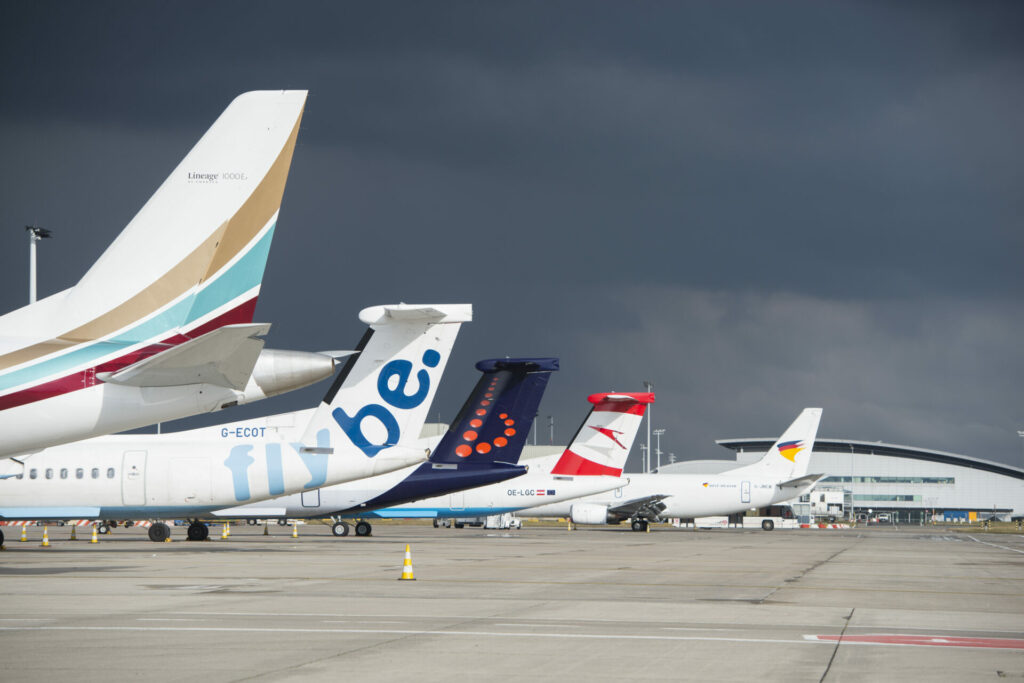Airspace performance in Europe declined in 2023, one of the worst years for flight delays related to airspace management in two decades, according to the Association of European Airlines (A4E).
Over a quarter of flights failed to arrive within 15 minutes of their scheduled time, and the increases in delays and costs affected airlines as well as millions of passengers, the Brussels-based advocacy group points out.
Data from Eurocontrol, the European Organisation for the Safety of Air Navigation, show that the delays resulting from air traffic management were the second highest in the past 20 years. These delays reached a total of 18.1 million minutes, equivalent to 301,000 hours or 12,569 days, figures higher than those reported in 2019, before the Coronavirus pandemic, when more planes were flying.
Advocacy group blames 'inflexible' nature of European air traffic management
A4E argues that the “rigid and inflexible” nature of the European air traffic management sector exacerbates the issue and complicates efforts to mitigate such delays. The group predicts that insufficient capacity plans and levels of air traffic controller recruitment will place even more pressure on European airspace.
Current capacity plans for the remainder of 2024 indicate inadequate capacity for the next half of the decade, so substantial reductions in delays are unlikely, A4E warns. The concern escalates as European airspace approaches, and potentially surpasses, 2019 traffic levels this summer, notes the association.
Related News
- Major airlines must stop 'illegally' charging passengers hand luggage fees, Test Achats says
- How to get to Charleroi Airport (for cheap)
While air navigation technology has advanced rapidly, airlines are travelling a regional route littered with detours and traffic lights, notes Ourania Georgoutsakou, General Director of A4E. Europe needs a smooth and efficient air highway, she stresses.
'Disappointing' airspace performance targets for 2025-2029
Airspace performance targets for 2025-2029 have been recently published. However, these targets are “very disappointing,” argues the head of the advocacy group, who believes they lack the high level of ambition necessary to reduce delays.
“As we head into the peak summer period, we urge air navigation service providers to do everything within their powers to provide the necessary capacity to minimise delays and ensure a smooth summer for all,” Georgoutsakou says.
Ryanair, for example, had to cancel 60 flights on Thursday and Friday due to an “underperformance” of airspace across the continent. Over 30% of the Irish company’s 3,500 flights were also delayed on Thursday, with 25% of departures in the first wave on Friday morning being delayed.
Higher air traffic control charges, lower staffing and service levels
Ryanair attributes this underperformance to repeated “staff shortages,” despite there being no sky-traffic controller strikes scheduled in France this summer, unlike recent years.
The airline also named an “equipment failure” at Eurocontrol’s Maastricht control centre in the Netherlands as a cause. This centre manages upper airspace (24,500 to 66,000 feet) over Belgium, the Netherlands, Luxembourg, and northwest Germany; one of Europe’s busiest and most complex air zones.
Ryanair claims that over the last three years, air traffic control charges in Europe have skyrocketed while staffing and service levels have continued to decline. It is urging European Commission President Ursula von der Leyen to urgently reform European air traffic control services, which, the low-cost Irish company says, are “in a wretched state.”

